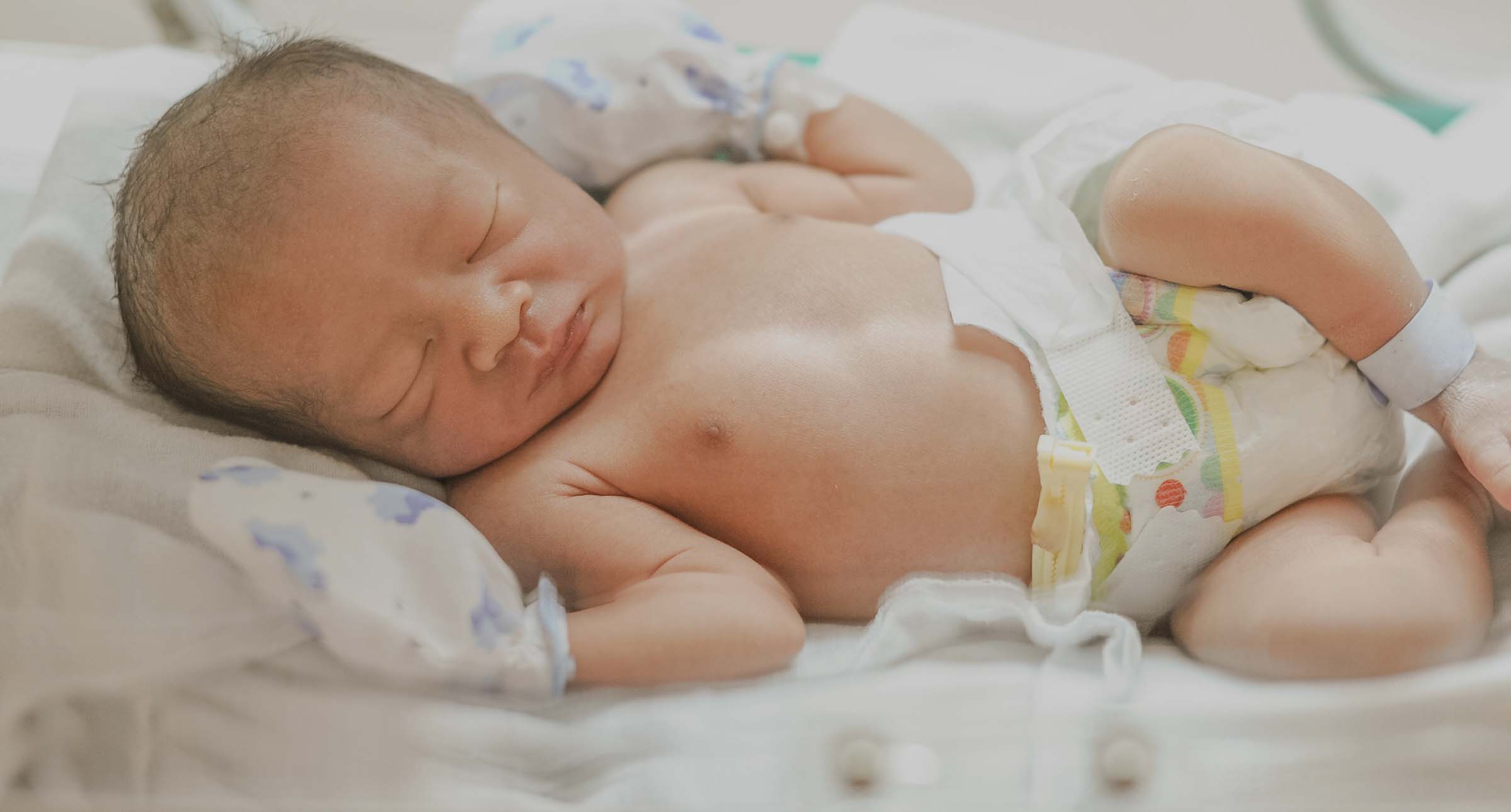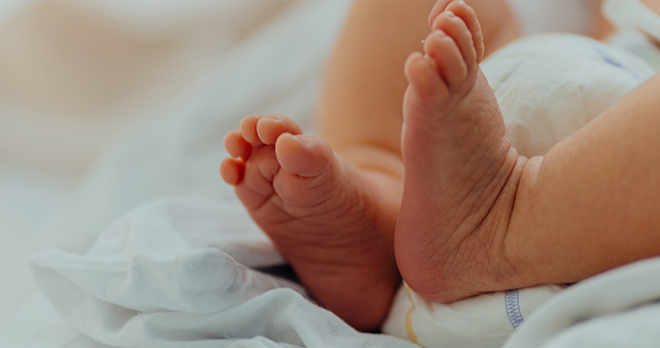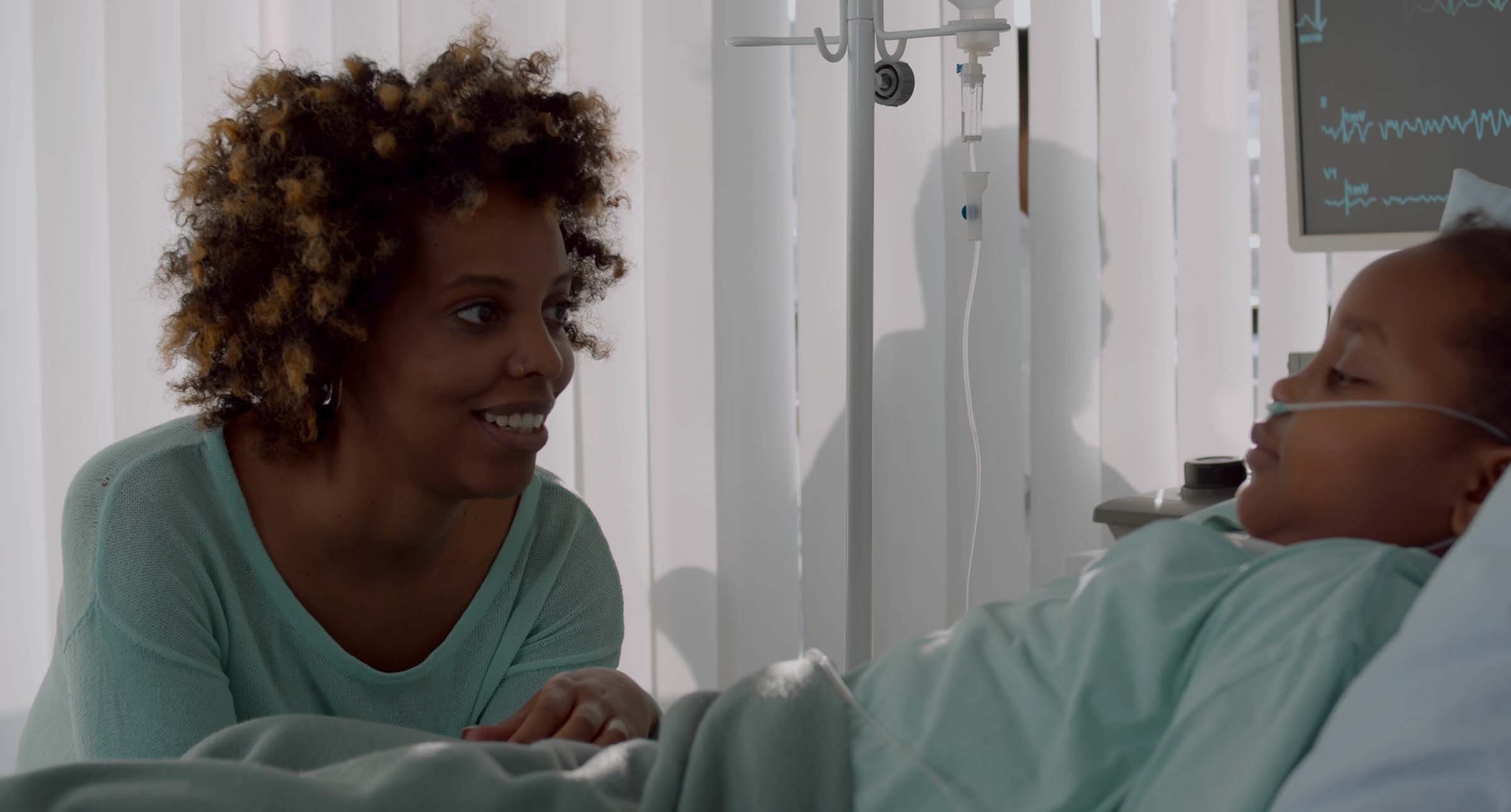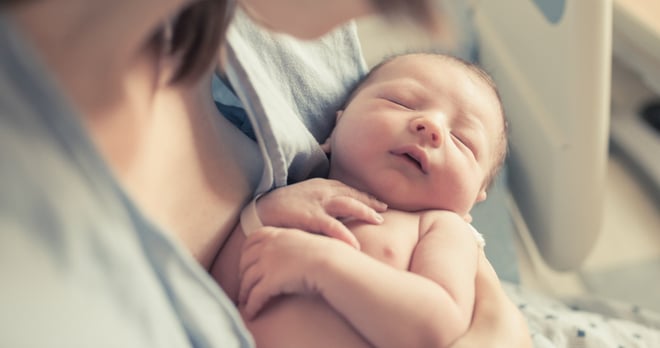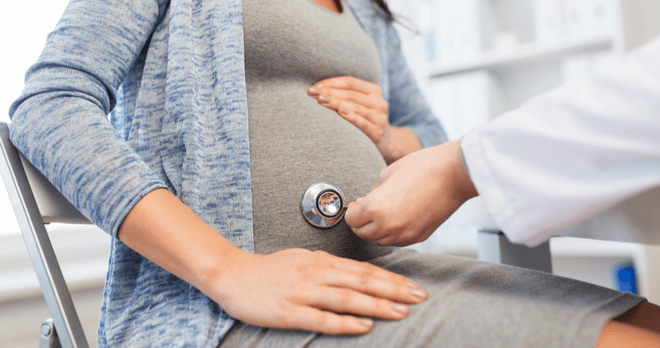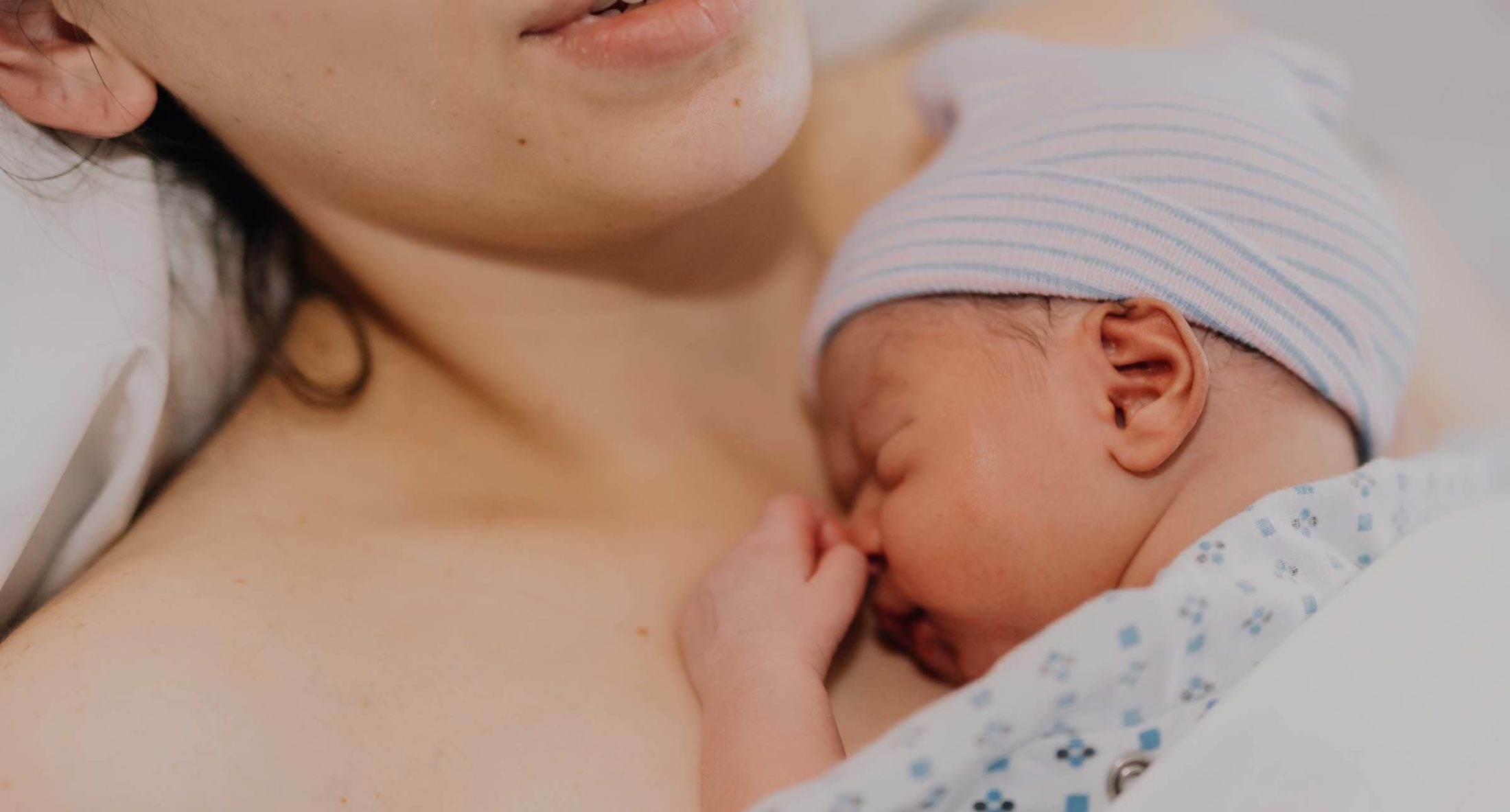

Compensation claims for birth injuries to mothers.
If you have suffered an injury during childbirth, you are likely to feel traumatised that what should have been a special time has gone so wrong. Our specialist solicitors understand the devastating impact this can have on you and your family and are here to support you.
Call for a free consultation
Here to look out for mum.
We have helped mums across the UK secure compensation for their birth injuries.
Every mother is entitled to a reasonable quality of care during pregnancy and childbirth to try and reduce the risk of injury occurring. Our specialist solicitors represent mothers and babies where the care provided fell below that reasonable standard. Our specialist lawyers see first-hand all types of birth injuries to mothers and know exactly what to do if you have experienced this. We work with you to understand your unique situation and to get you the compensation you are entitled to.
We understand exactly how traumatic births can also affect a partner, other children, and loved ones. The consequences of medical negligence during childbirth can be long lasting and far reaching. Our specialist maternal birth injury lawyers will hear all sides of your story.
Compensation will get you access to the best treatment, as well as the emotional and financial support to help you make the fullest possible recovery.
If you would like to claim compensation for an injury you have suffered during pregnancy or childbirth, talk to one of our compensation experts in a free initial consultation. We will look into your case, talk with you about what you have been through and together we can work out of you have a claim.
The scenarios that can lead to a medical negligence during childbirth are varied. But some of the most common issues we help people with every day are:
-
Bowel injuries
-
Stillbirth
-
Wrongful birth
-
Injuries related to infection and sepsis
-
Post-Partum Haemorrhage (PPH)
-
Incorrect stitching
-
Failure to manage pre-eclampsia
-
Failure to obtain consent
-
Fissures
-
Failure to diagnose and treat ectopic pregnancy
- Nationally recognised birth injury specialists who've recovered millions of pounds in compensation.
- Able to fund your case on a no win no fee basis.
- Represent mums across England & Wales, and available for home visits.
- Work with charities such as the MASIC Foundation to campaign for improved patient safety.
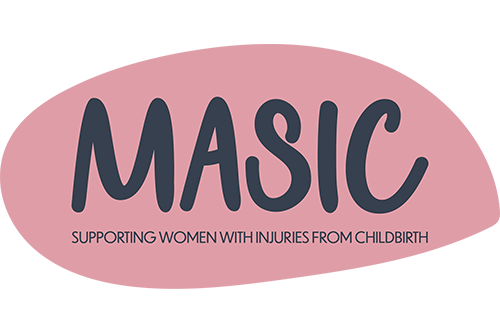
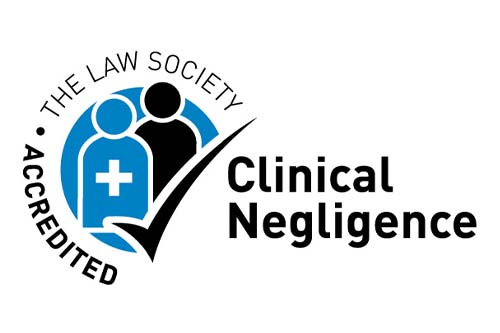
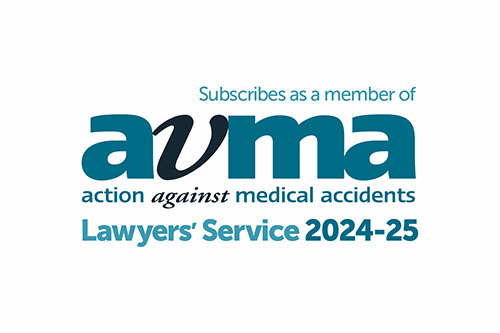

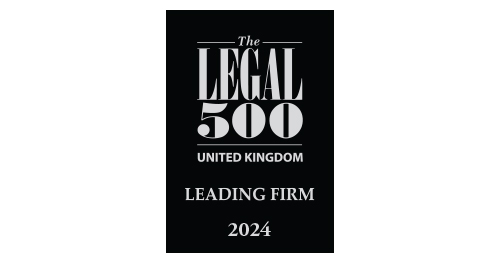
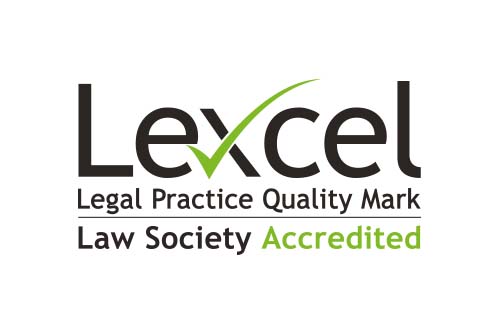
...or call for a free consultation today
What you might need to know after maternal birth injury.
Read our guide to the support available for physical & mental health, as well as making a complaint or legal claim.
As solicitors specialising in birth trauma and birth injury we represent women who’ve experienced the very worst birth injuries and trauma. Therefore, our expert team has put together a guide for any mothers dealing with birth injuries and trauma to highlight the support available.
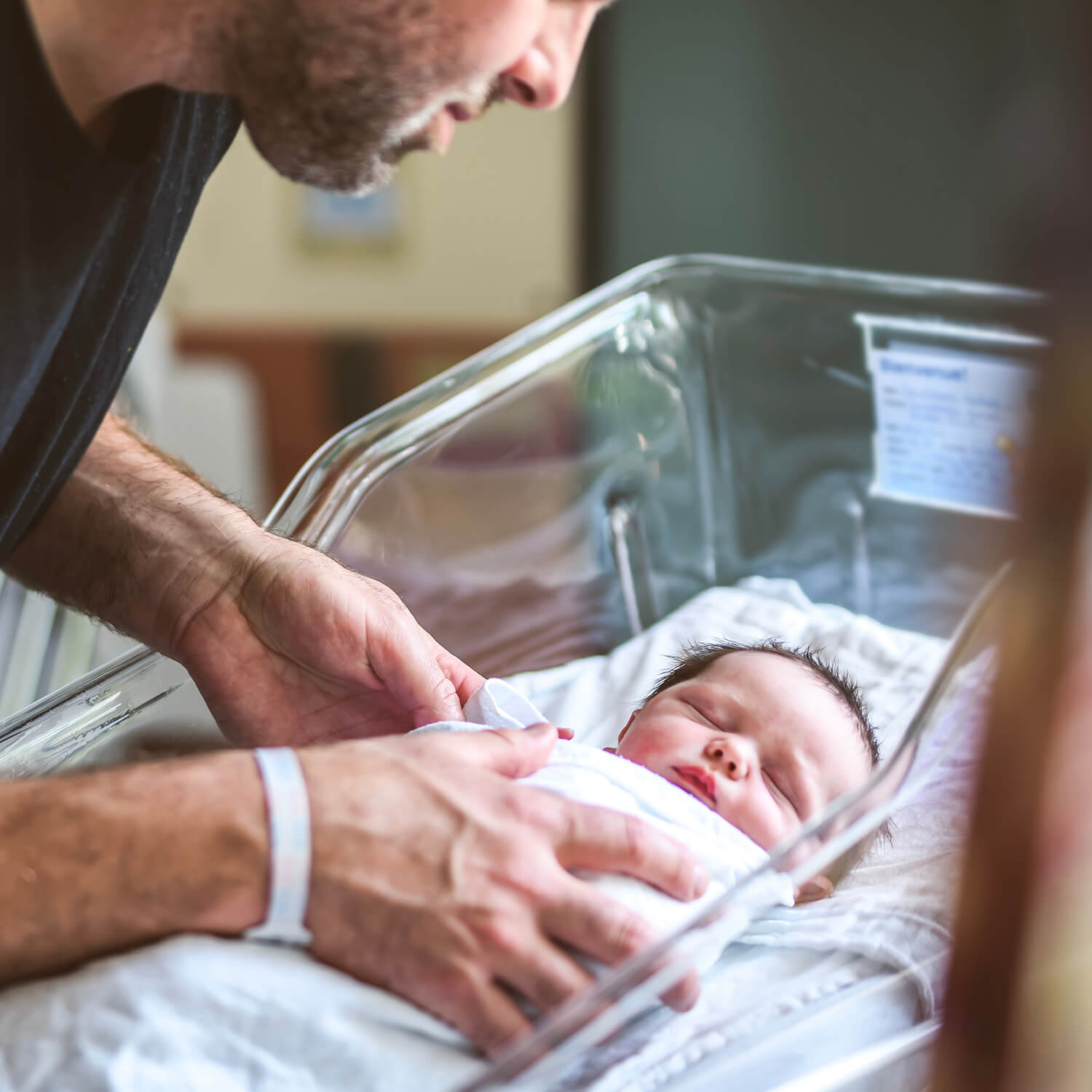
Claire’s Story
Claire had her second baby via caesarean section. Following the delivery, she felt something was not right.
Her stomach was severely bloated, and she suspected her bowel was in ileus but she was repeatedly told everything was normal. The following day an x-ray was performed because Claire was vomiting, and her symptoms were getting progressively worse. The x-ray showed faeces in the colon. Despite this, she was discharged.
Later that evening, Claire suffered severe pain in her stomach. She attended A&E and a CT scan was performed. The scan revealed that her bowel had ruptured and she underwent emergency surgery. She was told that her caecum had burst and that it had been necessary to remove a substantial section of her colon. She had two colostomies in place which were eventually reversed. Claire experienced episodes of incontinence. She has to be near a toilet as when she needs to pass faeces, she needs to go immediately. What happened has also affected her decision to have further children. She was told there is a risk of Ogilvie Syndrome happening again, and that is a risk that she and her husband are not prepared to take.
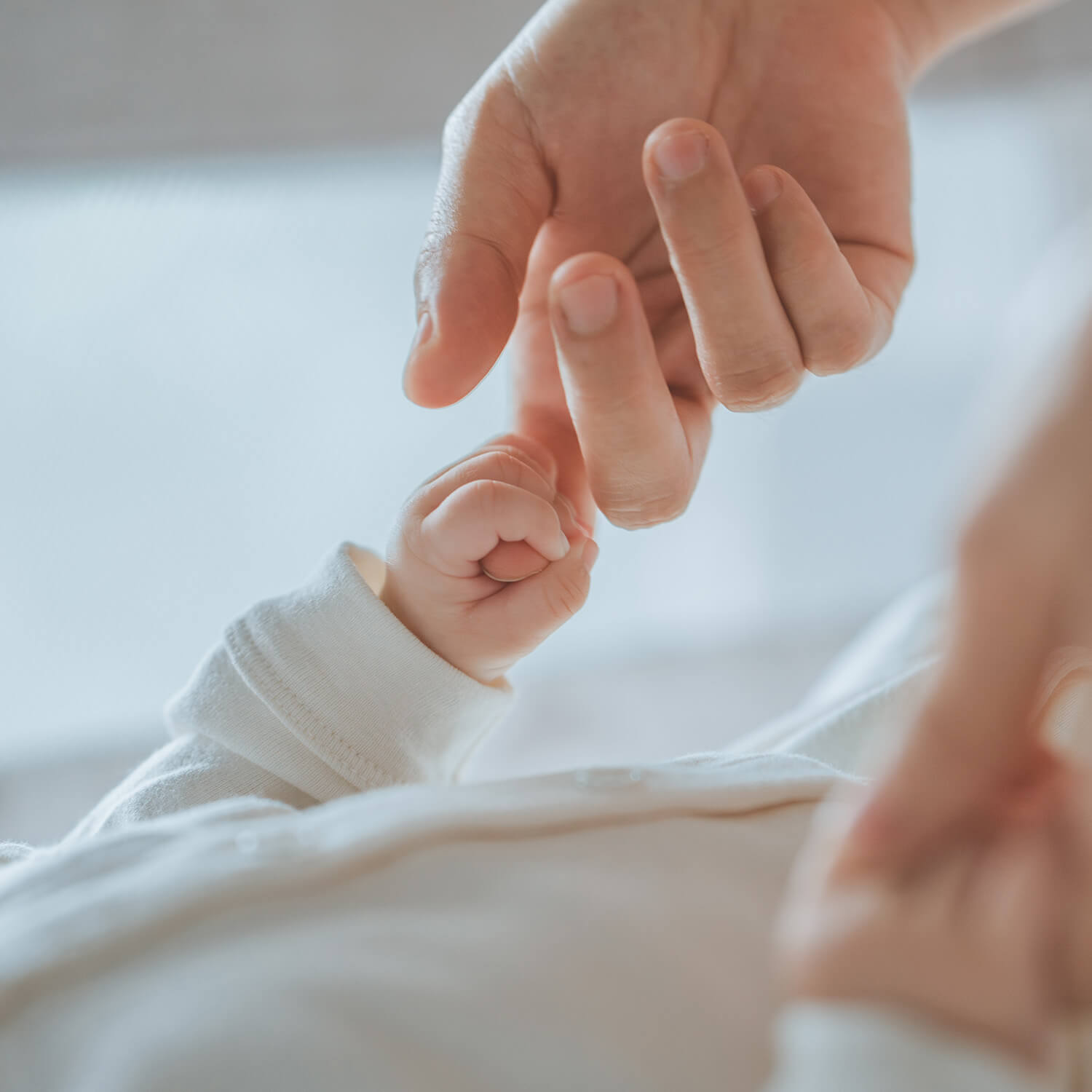
Eve’s Story
Eve was very fearful of giving birth and of the prospect of having to have forceps used at delivery.
Eve completed a birth plan making it clear that she did not want forceps used at the time of delivery and if an instrumental delivery was indicated that she would prefer to proceed to caesarean section. Eve had a history of diabetes in her family and therefore had a glucose tolerance test (GTT) to test for gestational diabetes. The test was performed over too long a period meaning that the results were invalid and the test should have been repeated. Despite this, Eve was reassured that the results were ‘normal’. Throughout the pregnancy, Eve’s baby was measuring large for dates and was measuring above the 90th centile.
At delivery, Eve was told that her baby was stuck and they needed to help the baby out with forceps. Eve asked for a caesarean section but was told that was not an option. A ventouse cup was applied and after 3 pulls, Eve’s baby was delivered. Her baby weighed 10lb 4oz. Eve suffered a postpartum haemorrhage (PPH) and was told she had suffered a second degree tear. Later that day, Eve complained of pain and swelling in her perinium. She was examined and taken back to theatre where 2 haematomas were removed and she was noted to be suffering from a third degree tear. Eve developed a uterovaginal prolapse, cystocele, rectocele and suffered with episodes of incontinence of urine and faeces.
Recent maternal birth injury cases.
Hannah Blackwell and Sophie Angwin-Thornes achieved settlement of £300,000 for a woman who suffered a severe fourth-degree perineal tear during the birth of her second child at University Hospital Coventry, part of University Hospital Coventry and Warwickshire NHS Trust in 2019.
Sophie Angwin-Thornes acted for a client who gave birth vaginally. During delivery she was assisted with an episiotomy and thereafter she was taken to theatre for a perineal repair. She was diagnosed with bilateral vaginal wall tears, a right sided episiotomy, and a left sided tear.
Our maternal injury team secured £350,000 for Strep A injuries following the delivery of child.
Our maternal injury team secured £150,000 for injuries suffered to T as a result of failures to treat the infection Streptococcus group A following the delivery of her child.
Hannah Blackwell and Rebecca Callard secured a lump sum payment of £350,000 (RPI Adjusted £421,111 as at September 2024) for a 30-year-old (at the date of settlement) mum of two (referred to here as CD) for the physical and emotional damage she sustained in April 2015 during, and following, the birth of her first child.
Rebecca Callard and Hannah Blackwell secured a lump sum payment of £360,000 (plus recoverable benefits) for a 27 year old (at the date of settlement) mum of two for the physical and emotional damage she sustained in December 2014 during, and following, the birth of her first child.
Simon Elliman and Sarah White secured a lump sum of £290,000 for a 43 year old woman (at the date of settlement) for the damage she sustained in May 2019. There was an admitted failure by the Defendant Trust to diagnose and treat Acute Colonic Pseudo-Obstruction (ACPO) also known as Ogilvie’s syndrome, which led to caecal perforation. As a result of this the Claimant suffered significant physical and psychiatric symptoms.
On 31 May 2019 the Claimant was admitted to Hospital for an elective caesarean section. Following delivery of her baby, the Claimant was bloated abdominally in recovery. On 1 June 2019 she reported that her abdomen felt swollen, that it appeared swollen and asked to be seen by a gastro-intestinal specialist. Later that day she was examined and “distended abdomen++, tympanic soft” was noted. Further examinations that day revealed that her abdomen continued to be distended and an enema was prescribed. In the early hours of the morning on 2 June 2019 the Claimant was again noted to have a distended abdomen and her MEOWS score was 3. She was prescribed Ranitidine. The Claimant argued with the doctor about the rationale for the prescription of Ranitidine. A few hours later the Claimant was reviewed and was complaining of increasing abdominal discomfort and nausea. She was prescribed glycerine suppositories, and an abdominal radiograph was to be considered. Later that morning the Claimant was noted to be apyrexial with a distended soft abdomen with absent bowel sounds. The impression was of an ileus. The Claimant was transferred to the delivery suite and had a nasogastric tube inserted. Her MEOWS score increased to 5. The following day (3 June 2019) the Claimant’s nasogastric tube was removed, and she was reported as feeling better with no nausea or abdominal pain. A plan was made to discharge her home. The next morning (4 June 2019) the Claimant was reviewed, her abdomen remained distended and her MEOWS score was 0. Later that evening the Claimant was reviewed and she reported feeling bloated in the upper right quadrant. She thereafter underwent an abdominal x-ray. It was reported: “There is a dilated loop of large bowel in the right side of the abdomen containing some faeces. There is further faecal loading throughout the remainder of the colon. The significance is not clear. No particular features of obstruction. The small bowel does not look dilated.” The Claimant was prescribed a suppository. The next morning (5 June 2019) the Claimant was reviewed and her abdomen was described as soft, non-tender and non-distended, she was passing flatus and had good bowel sounds. WBC and C-RP were reported to be down, HB and U&Es were normal and she was discharged home. In the early hours of the following morning (6 June 2019) the Claimant had an episode of severe lower right abdominal pain at home. She was transferred by ambulance to the Emergency Department of the Hospital and admitted. That afternoon she was noted to have a temperature of 38 and a MEOWS score of 10. An abdominal x-ray was reported : “The gaseous distension of 2 days ago has reduced somewhat but mildly distended loops of small bowel persist.” A CT scan was carried out at 1920, and was reported: “There is a large volume of intra-abdominal free gas and free fluid. There is gas adjacent to the porta hepatis and anterior to the duodenum. Comment: Bowel perforation with significant volume of free fluid and gas.” That evening she underwent a right hemicolectomy, end ileostomy and mucous fistula. Operative findings were: “Distended large and small bowel. Perforation anterior caecal wall. Four quadrant peritonitis.” The Claimant was admitted to the Critical Care Unit post-operatively. On 7 June 2019 the Claimant was discharged from the Critical Care Unit to the ward. On 11 June 2019 the Claimant underwent a CT angiogram to exclude pulmonary embolism after an episode of chest pain and elevated D-Dimers. No pulmonary embolism was diagnosed. On 13 June 2019 the Claimant underwent an abdominal CT scan due to rising C-RP, to exclude intra-abdominal collection. The CT scan demonstrated a large volume of intra-abdominal fluid consistent with infection. On 20 June 2019 the Claimant was discharged home. On 30 July 2019 the Claimant underwent a psychological assessment, and was diagnosed with depression, anxiety, and post-trauma related symptoms. On 9 August 2019 the Claimant had a pre-assessment prior to reversal of anastomosis. On 26 August 2019 the Claimant had an acute admission to hospital with abdominal pain. On 4 October 2019 the Claimant had an elective admission to the Hospital for laparoscopic reversal of ileostomy. She was discharged home on 8 October 2019.
The Claimant has been left with persistent intestinal hurry, reduced gut transit time resulting in diarrhoea, urgency and frequency and erratic bowel function. As a result of this she has to follow a specialist and restricted diet. The Claimant experienced considerable rib and abdominal pain in her subsequent pregnancy due to intra-abdominal adhesions, resulting from the negligence, which has not completely resolved. She has a lifelong risk of developing an incisional hernia, complications related to intra-abdominal adhesions, developing gall stones and suffering malabsorption of Vitamin B12.
As a consequence of suffering a perforation of the caecum and requiring emergency surgery, the Claimant developed Post-Traumatic Stress Disorder and a Depressive Episode of Mild severity. The Claimant encountered delayed maternal-baby bonding and her injuries have impacted her relationship with her husband. The Claimant’s abdominal scar is a source of anxiety and embarrassment and she will require abdominoplasty scar revision surgery. The financial implications of the Claimant not being able to work and then not being able to work at full capacity have also had a psychological impact on her.
The Claimant’s physical condition is permanent.
Call for a free consultation today
How your birth injuries may have occurred
There are a few ways in which negligent care may have resulted in your maternal birth injury. Here we explain, depending on the injury, when medical negligence could have caused it.
-
Induction of labour
Induction of labour is a well-established practice in the management of expectant women where delivery is required. As with any medical procedure there are risks involved in induction, and mothers should be carefully advised of the pros and cons (benefits and risks) of induction, the different methods available to them and, once a decision has been made to proceed, for the correct safety steps and procedures to be undertaken. Unfortunately, in some cases, if the correct safety steps are not followed induction can lead to birth injury.
-
Failure to manage pre-eclampsia
Pre-eclampsia is a condition that causes high blood pressure during pregnancy and after labour. It can be serious if not treated. Early signs of pre-eclampsia include high blood pressure and protein in the urine.
These are usually picked up during pregnancy appointments. If someone has pre-eclampsia they will have regular check-ups that may require a stay in hospital. They typically would receive medication to reduce blood pressure. If pre-eclampsia is not diagnosed and/or treated appropriately then the consequences can be very serious for both mother and baby. In the worst case scenarios, it can result in the death of the mother and baby. Negligence can occur when a woman has pre-eclampsia if:
- There is a failure to ensure the mother has regular antenatal appointments
- There is a failure to recognise an expectant mother is at high risk of developing pre-eclampsia
- There is a failure to undertake tests and investigations during antenatal appointments
- There is a failure to refer the mother once she is diagnosed with pre-eclampsia
- There is a failure to appropriately monitor and treat this condition once diagnosed.
-
Incorrect stitching
We receive enquiries from women who have had a poor outcome as a result of inadequate stitching or repair. This can lead to poor healing, ongoing infections as well pain and sexual dysfunction. Often a revision procedure is needed and in extreme cases, there can be the development of a fistula (hole) between the anus and vagina which can cause flatus (wind incontinence) and the leakage of faeces.
-
Bladder damage
We represent clients who have sustained an avoidable injury to their bladder as a result of childbirth. These injuries can occur from an improper surgical technique during caesarean section, a failure to recognise and treat the injury once it has occurred or from a failure to advise on the risk of bladder damage and mitigate the risk of this injury occurring. We have acted for client in relation to the following injuries: inappropriate management of urine retention after birth and damage to the bladder and/or ureter during caesarean section. Sometimes surgical damage can occur which creates a Vesicovaginal fistula (connection between bladder and vagina, causing urine to leak from the vagina).
-
Ectopic pregnancy
An ectopic pregnancy occurs when an egg is fertilised but, rather than being implanted in the womb where an embryo can safely grow into a foetus, the egg implants elsewhere – usually in a fallopian tube. Left untreated, however, as an ectopic pregnancy grows it can rupture a fallopian tube and cause serious internal bleeding and even death. Symptoms of an ectopic pregnancy include vaginal bleeding, abdominal pain and pain in the tip of the shoulder and the condition can often be diagnosed with a positive pregnancy test and a simple ultrasound scan. We see cases where women attended a healthcare facility (GP or perhaps an urgent care centre or A&E) with symptoms of an ectopic pregnancy, and the symptoms were not recognised or even if the woman was pregnant or, if there was a positive pregnancy test. More often the symptoms are wrongly attributed to a miscarriage.
-
Bowel injuries
Sadly injuries to the bladder and bowel can happen naturally during childbirth, but there are situations where these injuries occur when they should not. This may be because a mother was not properly advised of the risks of vaginal delivery, the delivery itself was not managed appropriately, or the aftercare was not as it should have been.
-
Perineal tears
The extent of these injuries can vary and the prognosis is often worse if a primary repair is not carried out properly. These can occur because the risks of a vaginal delivery were not explained to a mother and she was not offered any alternative options, if the birth was not managed appropriately leading to a perineal tear, or when a perineal tear occurred naturally but was not repaired correctly. The injury can lead to long-term incontinence of faeces and flatus as well as ongoing pain.
-
Ogilvie’s Syndrome
Ogilvie’s Syndrome is a rare complication following caesarean section that causes abdominal distension, impaired bowel function and abdominal pain. If left untreated gases build up in the colon causing ischaemia and/or perforation of the caecum. Early recognition following caesarean section is essential to avoid bowel perforation. Sadly, our team have now represented a number of mothers where Ogilvie’s Syndrome was not diagnosed until it was too late, causing them to suffer peritonitis requiring urgent surgery and formation of an ileostomy.
-
Stillbirth
Not all stillbirths are preventable, but our specialist medical negligence team have represented mothers where sadly, they did not receive the check-ups or treatment during pregnancy that can help detect problems to keep baby’s alive and healthy. Such cases are extremely traumatic for families and we understand that it is difficult for families to relive such a traumatic event which is why we work closely with families to try and make pursuing the case as easy as possible. While no compensation can bring a lost child back we work with families to recover the cost of therapy, loss of earnings and other related expenses that have arisen due to their loss.
-
Wrongful birth
Wrongful birth is a legal term that refers to the birth of a child who would not have been born without negligent treatment. A wrongful birth case can be brought by parents when there has been either:
- a failed sterilisation/vasectomy; or
- a failure to warn about a specific disability.
A wrongful birth claim following a failed sterilisation/vasectomy can lead to compensation for physical and emotional pain, distress of an unwanted pregnancy and labour, and any additional re-sterilisation procedure. It is not, however, possible to receive compensation for the loss of bringing up a healthy child born as a result of failed sterilisation.
Where parents have not been warned that a child would be born with specific disability, and if they had been warned, they decided to terminate the pregnancy, they can pursue a claim for wrongful birth. The parents can pursue a case for the compensation for the costs associated with the child’s disability.
There are many other scenarios that can give rise to a medical negligence claim during childbirth. If you believe you may have suffered an injury following childbirth, get in touch with one of our specialists who will be happy to offer you a free consultation on whether you have a claim.
-
Injuries related to sepsis
Sepsis is a complication suffered by some women in pregnancy (maternal sepsis) or after the delivery of their child (post partum sepsis),when the body responds in an extreme manner to infection causing systemic damage to organs and tissues in the body, usually causing heart and multi-organ failure if untreated.
Sepsis is one of the leading causes of maternal deaths. Common infections which go onto to develop into sepsis relate to perineal injuries becoming infected, spreading into the uterus and the blood stream. It is therefore extremely important for mothers and midwives to be highly alert to the signs of infection during and after pregnancy so that treatment can be offered at an early stage. Failure to spot clear signs of infection and to refer women into hospital for investigation and treatment can result in unnecessary delays and significant worsening symptoms and consequences (such as the need for a hysterectomy), which can be avoided with early intervention.
Risk factors associated with higher rates of sepsis include gestational or Type 1 diabetes, anaemia, perineal and pelvic infections, caesarean sections, Group B or Group A Streptococcus infections and the prolonged rupture of membranes. Early treatment of sepsis is paramount and is a medical emergency.
-
Post-Partum Haemorrhage (PPH)
PPH refers to excessive blood loss following childbirth. Several factors increase the risk of a mother experiencing a PPH such as induction of labour, prolonged labour, instrumental delivery, caesarean section and retained placenta.
A PPH is an obstetric emergency and requires urgent steps be undertaken to stop the bleeding. Most medical negligence cases arise from a delay or failure to carry out these steps.
How much might a claim for injury during childbirth be worth?
The levels of compensation we will look to recover for you will not only relate to the physical pain and suffering experienced but any ongoing therapy, treatment or surgery required.
We will consider with you whether your injury has led to you requiring care from friends or family and whether you will require further care in the future, and will also consider any loss of earnings you may have incurred or whether you would benefit from any specialist equipment.
How long does a claim take?
The time taken to conclude a maternal injury case often depends upon the approach taken by the Defendant Trust and whether they make early admissions of negligence or pursue the case through court.
It is also important that while working with a team of experts, we are able to get a clear understanding of your prognosis and how the injury is likely to impact upon you for the rest of your life before trying to negotiate a settlement of your case. For these reasons, the time taken to reach a settlement of a case can vary from case to case. That said, it is often possible to conclude these types of cases within one to three years of investigation.
How can a claim be paid for?
For these types of cases there are usually two ways to fund a claim. The most common one is when we enter into a “no win no fee” agreement which is also known as a Conditional Fee Agreement (CFA). Alternatively, you might have a legal expense insurance policy that you could use, even if you might not know you have it.
Our team will discuss your possible case with you and the main thing to note is that if your case is viable, we can always find a way to fund it, and we will chose the way that best meets your needs.
What if my child is also injured, can RWK Goodman help?
Yes. It is very common for our specialist team to represent both a mother and baby who have both been injured due to the circumstances of the birth.
We have a specialist team of birth injury solicitors and we will consider whether there may be a potential claim for both you and your baby at the outset of our investigations.












